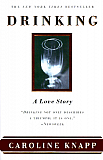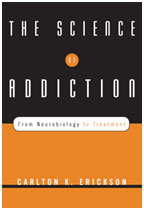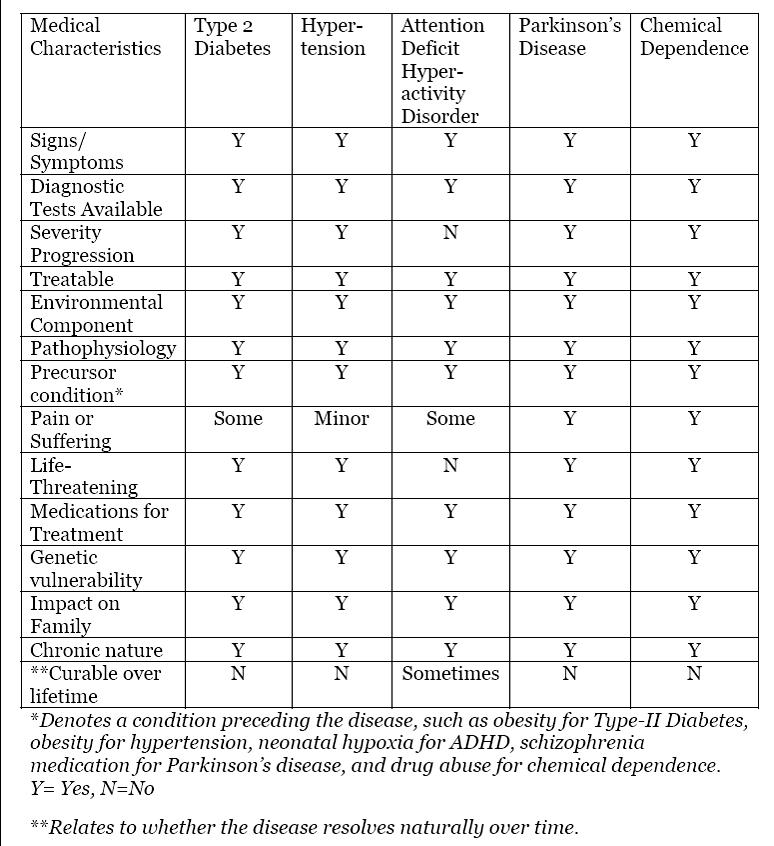 By Danny Smith, Jimmy Wilson, Will Yeatman, Rachel Guerrera, and Mark Hinken
By Danny Smith, Jimmy Wilson, Will Yeatman, Rachel Guerrera, and Mark Hinken
It’s our fault. But let’s spread the blame. The burden also lies on the shoulders of the educational community. And society itself. There is a serious misconception that exists. This misconception is that chemical dependence is not a disease. By not recognizing chemical dependence as a disease, society continues to hold harmful stereotypes about alcoholism and drug addiction.
The goal of this blog post is to address this major problem facing drug addicts and alcoholics. Society enables chemical dependence by causing denial. Denial helps create a vicious cycle that traps addicts. They tell themselves they do not have a problem and reject the idea to others that a problem exists.
However, denial is not just prevalent in cases of chemical reliance. It is common in everyday life, seen in issues concerning body image, gambling, sex and social interaction. In these cases, like addiction, denial stems from the social stigmas produced by society.
In today’s culture having a slim and fit body is heavily desired and expected. People who do not conform to the lofty standards set by models and Hollywood elite often feel abnormal and subject to ridicule. As a consequence anorexia, bulimia and dysmorphia have become more common among the current population. However, though these three eating disorders are labeled as real diseases, they are viewed as taboo in society. Therefore, people who suffer from anorexia often deny to others or even themselves that they really have a problem with a serious disease.
US society does not often pair diseases such as anorexia and alcoholism with diseases like cancer and Parkinson’s disease. Yet they are all chronic diseases. If the United States came to view chemical dependence with the same empathy as cancer, we could help eliminate the destructive low self-esteem and denial found in chemically reliant individuals.

In her book Drinking: A Love Story, Caroline Knapp laid out the trials and tribulations she faced as an alcoholic. A fundamental reason she was trapped in her chemically dependent lifestyle was because she denied to herself and to others that she had a problem. “The truth gnaws at you. In periodic flashes like that I’d be painfully aware that I was living badly, just plain living wrong. But I refused to completely acknowledge or act on that awareness, so the feeling just festered inside like a tumor, gradually eating away at my sense of dignity” (Knapp 22).
When words like “drunk” or “alcoholic” are used in everyday language, thoughts of pity and indignation are often mulled over in most people’s minds. These words have become negative heuristics, unfavorable cues in the minds of people created by society, and they do not only affect healthy people but also people like Caroline Knapp.
The embarrassment runs so deep that alcoholics often resort to drinking alone, the title of one of the chapters in Knapp’s book. In this chapter she described the difficulty she often had disposing of the “evidence” that she drank too much. But as she said, “Luckily, I did most of my solitary, alcoholic drinking in communities that didn’t recycle, so I’d pile the bottles into a heavy plastic garbage bag and lug them out to the curb or heave them into a Dumpster, hoping no one nearby heard all the glass clinking and rattling as I went along” (Knapp 103).
The embarrassment Knapp felt created many of the negative drinking habits she had during her lifetime. Thus, denial is a tactic used by chemically dependent people in order to protect themselves and rationalize their behavior (see more on individual denial here). As seen with Caroline Knapp, alcoholics worry constantly about what other people think about them and try to hide their drinking.

In Motivational Interviewing, William Miller and Stephen Rollnick focus on the proper techniques that should be employed for alcohol dependence treatment. Miller and Rollnick say that, “Denial need not be defined as a personality trait. It may, alternatively, be seen as merely as a refusal to admit problems, even conscious deception and lying” (Miller & Rollnick 10). And the reason why addicts feel the need to consciously deny personal problems is because of a misconception of alcoholism and drug addiction.

Carlton Erickson in his book The Science of Addiction helps shed light on the misunderstanding that exists within society concerning chemical dependence. As Erickson points out, alcohol dependence is a disease. He says early in his book that, “I believe that much of the confusion regarding whether people who drink or take drugs too much are responsible for their own actions has stemmed from scientists’ inability to properly educated the public, and the publics’ failure to understand that not everyone who drinks or drugs too much is an ‘addict’” (Erickson 10).
In his book Erickson produces a table (p. 11), which we have included below, containing five diseases and 14 medical characteristics. The five diseases he lists are type 2 Diabetes, hypertension, attention deficit hyperactivity disorder, Parkinson’s disease, and chemical dependence. The table makes it clear that chemical dependence shares many of the same standard medical symptoms of the other four diseases. This example further shows that chemical dependence should be thought of as a disease, not as a social stigma.
The misunderstanding is in part due to a confusion regarding words like alcoholism and addiction. As Erickson points out, these words are not scientific. They do not accurately describe the phenomenon that is chemical dependence. Society muddles the term alcoholic to mean two things: chemical dependent and chemical abuser.
Erickson clarifies the point saying, “Drug abuse is described as the intentional (conscious) overuse of drugs in cases of poor judgment, self-medication, over celebration, and other situations where drugs use can be harmful or illegal” (Erickson 16). College binge drinking comes to mind when thinking about chemical abuse. This drinking is common among college students who take shots of hard alcohol and drink large amounts of beer in one night. Chemical dependence is a lack of control over actions pertaining to a certain chemical that the brain is reliant on. The term alcoholic is often used to mean these two things rather than one, which creates a misconception among people regarding chemical dependence as a disease.
In reality, denial in chemical dependents can largely be attributed to the negative treatment they receive from friends, family and even strangers. Alcohol dependent people sometimes are confronted by harsh intervention where they are shamed and shocked into admitting their problem. Miller and Rollnick say that, “[Research] explicitly emphasized the importance of empathic listening, and described a form of counseling that is more compassionate than aggressive” (Miller & Rollnick 6). This is one of the few clinically proven effective approaches to addiction and should be practice more widely among members of society.
Culture initiates many addictions and chemical dependences. People feel pressure to conform and whether it is obsessive workouts to achieve the socially preferred figure, or heroin as a means to escape problems, people engage in certain behaviors that help allow them to cope. However, and more importantly, there is also a second stage of the societal impact that begins after the addiction cycles have progressed. In order to avoid the negative attitudes generally directed towards those suffering from their addiction, they often begin to hide their symptoms and deny their problems.
This social reaction leads to further complications as the increased stresses involved with denying addiction can cause people to become more reliant on their use as an outlet. Perhaps the next thing to look at is whether our laws also add to denial by punishing rather than treating those who are chemically dependent. Either way, it is clear that education and empathy are the keys to success to help reduce the cases of denial within chemical dependence and other serious diseases.


Very good post, thanks!
I’m currently trying to salvage things after having struggled with addiction for roughly 25 years, and I totally agree that societies attitudes regarding addiction are detrimental. We are just so judgemental. So judgemental that people are reluctant to accept their bad habits and behaviour.
We need to realise that people are not perfect. They screw up and do stupid stuff sometimes, and occationaly some people get caught in a cycle of doing stupid stuff over and over. I know I did. So what. It’s all a part of being human.
If we would all just learn to be less judgemental, then maybe people would be able to just honestly and openly say, “yeah, I drink too much”, or “I junk out on food when I’m anxious”, or whatever. It doesn’t make them horrible people.